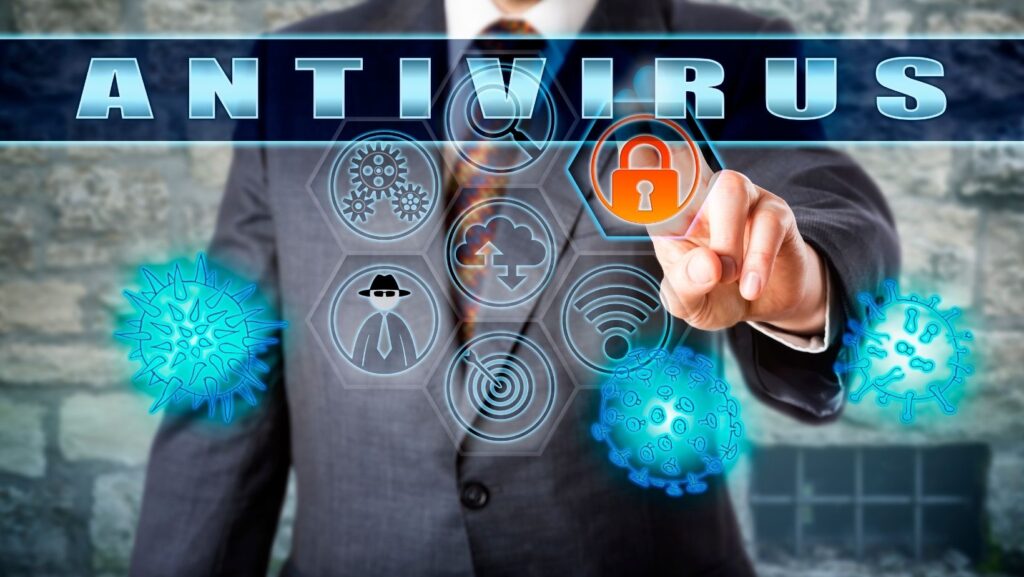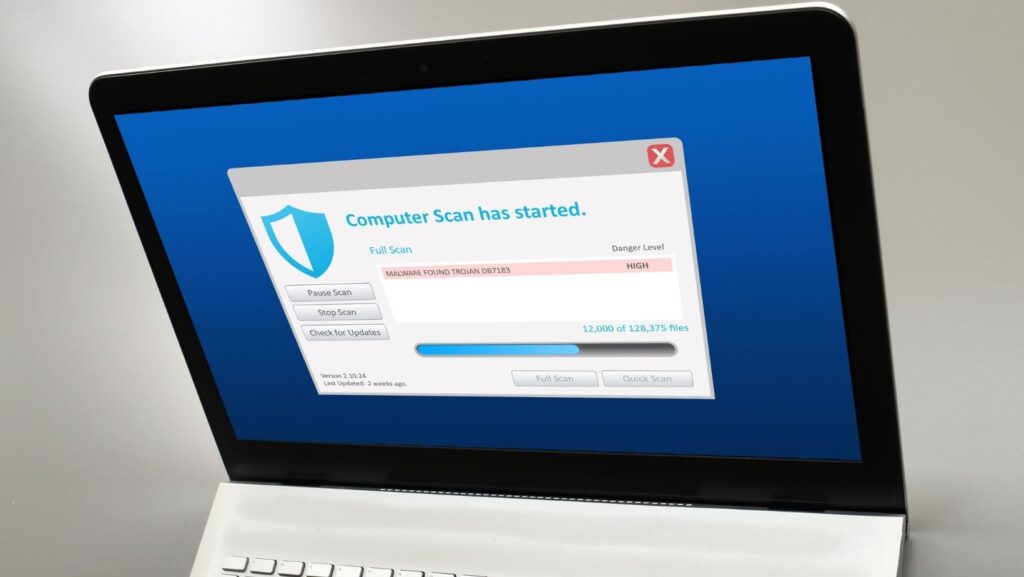Table of Contents
- Is Antivirus still necessary?
- How does Antivirus work?
- There are those who argue the case against antivirus
- Looking more closely at built-in antivirus software vs. extra third-party software.
- Microsoft Defender Antivirus (Windows Defender)
- Is there a difference between free or paid Antivirus software?
- Is antivirus still needed if you have a VPN?
There was a time when all you heard about were viruses, and we are not talking about humankind, nor the kind that might occur whilst playing for those casino jackpot rewards and bonuses! The viruses that we are talking about are those that apply to computers, phones, and tablets.
But are these viruses still relevant in 2022. Today many operating systems already have built-in anti-virus protection so it begs the question: is it really necessary to get third-party anti-virus software?
Is Antivirus still necessary?
The experts say that there is still a need for antivirus software, particularly for some devices like Windows, macOS, and Androids. However, it is not necessary to install any antivirus software on your iPhone.

The new malware and other online threats surface every day. According to the AV-Test Institute, more than 350,000 new threats are registered every day, that includes new malware and PUAs. The bigger problem is with malware, being 90% of threats in 2020, but PUAs are also a concern.
But there are some operating systems that are more likely to get viruses than others, for instance, Windows. According to managed service providers, around January 2021, 87% of ransomware attacked Windows computers. Likewise, new malware and also new PUA showed up most on Windows devices, according to data from AV-Test. The next in line was Androids and, after that, Macs.
Therefore, it would seem that antivirus software is still needed unless you have an iOS device such as an iPhone or iPad.
How does Antivirus work?
Basically, antivirus software works by scanning your computer, or another device, for viruses, malware, or any other threats. If it finds something suspicious it will isolate it and then remove it.
The following are a list of basic things included in the antivirus software:
- Scans – Software always includes scanning. It is possible to have this running constantly, schedule scanning, or on-demand.
- Behavior-based detection – the software is able to detect viruses and malware even though they are not already present in existing databases.
- Isolating virus and removal – When the software detects a threat, it will quarantine it so that it can’t infect anything else and then remove it.
- Web browsing safeguard – antivirus software protects you when you are locally on your device and also while you are browsing online.
Sometimes there are extra security features included in the software:
- Parenting control – parents are able to block particular sites thereby keeping their children safe. Parents are also able to put into effect and control screen time.
- Firewalls – these prevent threats from entering via your device’s network.
- Securing your browsers – these encrypt your web activity so that Internet Service Providers are not able to track where and what you are doing online.
- Password management –store all your login details in an encrypted form.
- Encrypted cloud storage – for those very important and more restricted files.
- System optimizing – there are ways to improve your system’s way of dealing with things, for example, speed by getting rid of files and downloads.
- Protection against identity theft – these services scan many financial and criminal areas to confirm the user’s personal information.
- VPN services – encrypt your web activity and create more privacy.
There are those who argue the case against antivirus

We all agree that antivirus is not necessary for iOS devices nor was it developed for this purpose. So don’t be tricked into thinking that you need it for your phone.
Antivirus software is quite expensive. The average cost for a year of antivirus software is $40. There is some free antivirus software available but the terms of use are usually very limited. In addition to the above, devices such as Windows and Macs have their own antivirus software built-in, so extra antivirus software is thought to be unnecessary.
Looking more closely at built-in antivirus software vs. extra third-party software.
Is it necessary to have additional virus protection if your device already has it built-in?
Microsoft Defender Antivirus (Windows Defender)
This software guard against spyware, malware, and all kinds of viruses that can attack Apps, Cloud Storage, Email, and the Web. But only newer computers, those later than Windows 10, will have Windows Defender and unfortunately, it is not good for all users. Because of this, Microsoft developed another software, Defender for Endpoint, which provides those users with an alternative. It is also possible for users to acquire third-party apps if they choose.
macOS Big Sur Antivirus
Mac computers that have the Big Sur operating system will include XProtect. This is antivirus software that is built-in and functions without the user having to do anything at all to activate it.
Offered by Apple is something called Gatekeeper which scans software for malevolent behavior and stops it from working if it is thought to be malware. Also, Sandbox mode enables Macs to work apps in isolation, or a “virtual sandbox” – quarantined from the rest of the computer.
Notwithstanding the fact that these built-in features are key elements in any antivirus software, they don’t protect against adware or PUPs that may have been installed without the user knowing. According to a report in 2020 Malwarebytes “State of Malware” noted that threats to Macs went up by over 400% from the previous year. Therefore, it would seem that built-in antivirus is not enough protection, especially against adware and PUPs.

Is there a difference between free or paid Antivirus software?
Some of the free options will likely have limitations. They may not be compatible with your operating system. Some of the free options may lack firewalls. Any they may be suitable for only one device which may not be helpful if you have a number of devices that need protection. It is important to check out exactly what the software is offering.
Is antivirus still needed if you have a VPN?
VPNs encrypt the IP address of your device and also the web activity. Antivirus software is doing something completely different. It is guarding against viruses and malware. So, the answer is yes, you definitely need antivirus software even if you have VPN.



